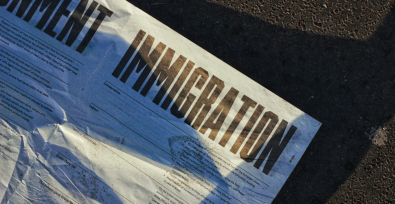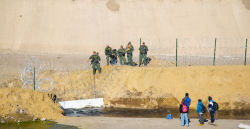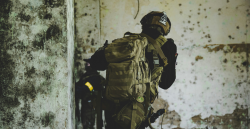A new report from the United Nations Office of Drugs and Crime (UNODC) has found that the number of trafficked girls rose worldwide, now accounting for 23% of all trafficking victims.
The new statistic on girls is based on data from 2016, though it marks an increase from 21% in 2014, and 10% in 2004. The UNODC found that boys accounted for 7% of reported trafficking victims, down from 8% in 2014, and up from 3% in 2004.
“In the profile of identified victims, we are seeing more and more children, an increase particularly in girls,” said Angela Me, chief of the UNODC’s research and trend analysis branch.
CNN reports:
Me explains that trafficked girls are typically victims of sexual exploitation, while boys are more often exploited for forced labor.
The UN defines girls and boys as being aged less than 18, but Me says some member states use different definitions.
The report shows that women and girls account for almost three quarters of all detected victims of trafficking in 2016. Females make up 94% of the total victims trafficked for sexual exploitation, and 35% of those trafficked for forced labor.
The report also indicates that the overall number of reported trafficking victims has increased. In 2016, about 40% more victims were detected compared to 2011.
But the UN says that this rise could be due to an increase in trafficking globally, or it could be a result of enhanced national capacities to detect, record and report data on trafficking. In 2009, only 26 countries had an institution which systematically collected data on trafficking cases, whereas in 2018, the number had risen to 65.
In addition, the UNODC report highlights the effect of armed conflicts on human trafficking, noting that areas with weak rule of law provide traffickers with “fertile terrain.”
Vulnerable communities fleeing conflicts, especially Syrian, Iraqi, and Rohingya refugees are often targeted by traffickers.
“In migration flows, you have a dispersion of families and then you have many children who travel alone, who definitely become more vulnerable to be trapped into exploitative situations,” explained Me.
The UNODC welcomed the increase in anti-trafficking legislation and policies globally, but warned that convictions remain abysmally low, writing “There appears to be hardly any risk for traffickers to face justice.”






Freedom United is interested in hearing from our community and welcomes relevant, informed comments, advice, and insights that advance the conversation around our campaigns and advocacy. We value inclusivity and respect within our community. To be approved, your comments should be civil.